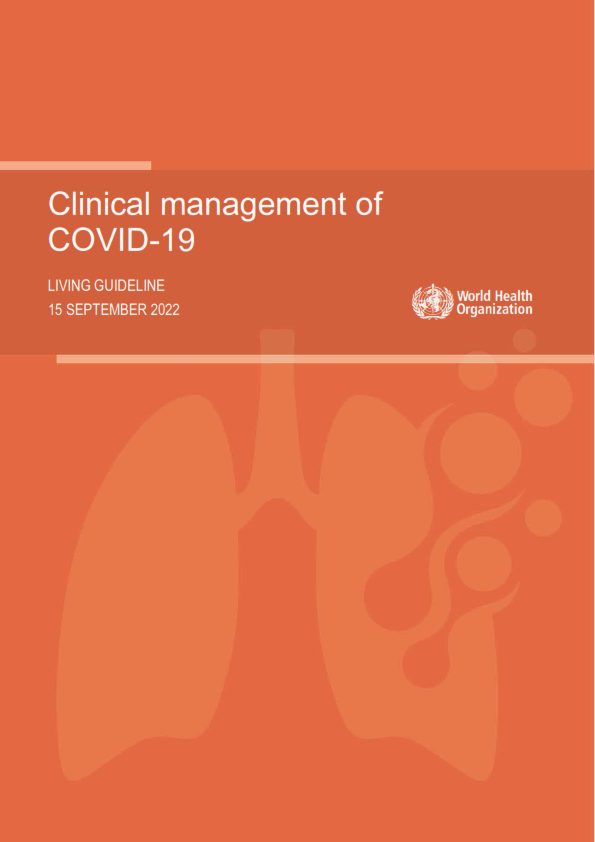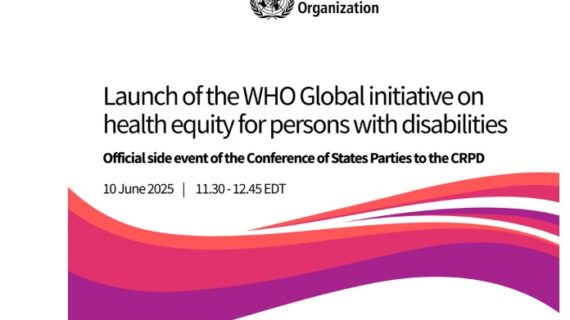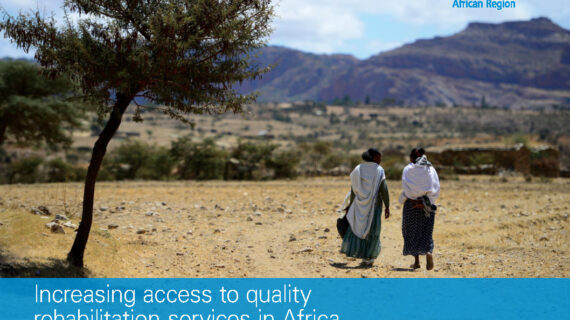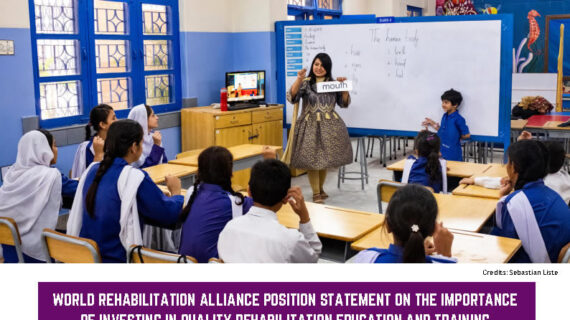Clinical guideline: What are the intervenions to manage paients with COVID-19?
Target audience: The target audience is anyone broadly involved directly or indirectly in the care of paients with COVID-19 and post COVID-19 condiion, i.e. clinicians, allied health care workers, facility managers and hospital administrators.
Current pracice: The evidence base for clinical management of COVID-19 is increasing rapidly. Numerous randomized and observaional trials are underway to inform pracice. This version of Clinical management of COVID-19: living guideline includes 16 new recommendaions.
New recommendaions: In this update, the Guideline Development Group (GDG) makes 16 new recommendaions for rehabilitaion of adults with post COVID-19 condiion:
• To support the delivery of rehabilitaion services for post COVID-19 condiion we suggest the following core components:
1.Mulidisciplinary rehabilitaion teams; 2. Coninuity and coordinaion of care; and 3. People-centred care and shared decisionmaking. To support the operaionalizaion of the core components, planners could implement core funcions, including: 1. Standardized symptoms assessment and outcome measurement;
2. Follow-up system; and
3. Referral system. (Condiional recommendaion for)
• In adults with post COVID-19 condiion exerional desaturaion and cardiac impairment following COVID-19 should be ruled out and managed before consideraion of physical exercise training. While orthostaic intolerance and post-exerional symptom exacerbaion (PESE) are amenable to rehabilitaion, their presence will require intervenions to be modiied in view of these diagnoses for rehabilitaion to be safe. (Strong recommendaion for)
• An early referral of adults with post COVID-19 condiion for appropriate rehabilitaion services is suggested when
experiencing symptoms and impairments that may be managed efecively and that have an impact on everyday funcioning, when red lags for safe rehabilitaion have been considered. (Condiional recommendaion for)
• For rehabilitaion service delivery for post COVID-19 condiion we suggest using a hybrid approach of in-person and remote models that is integrated across all levels of health care. It is suggested that the length of a rehabilitaion programme is based on paient needs, enabling re-engagement if new onset funcional decline occurs. (Condiional recommendaion for)
• A workforce for the rehabilitaion of adults with post COVID-19 condiion may include but is not limited to physiotherapists, occupaional therapists, nurses, psychologists, speech and language therapists, physicians and social workers. Community health care workers may be required based on local needs. (Condiional recommendaion for)
• For the clinical rehabilitaion management of PESE in adults with post COVID-19 condiion we suggest using educaion and skills training on energy conservaion techniques such as pacing approaches. The provision and training in the use of assisive products and environmental modiicaions may be useful for people experiencing moderate to severe PESE. (Condiional recommendaion for)
• For the clinical rehabilitaion management of arthralgia in adults with post COVID-19 condiion we suggest using a
combinaion of pain educaion, skills training on self-management strategies, prescripion of short-term ani-inlammatory
drugs, and in the absence of PESE physical exercise training. (Condiional recommendaion for)
• For the clinical rehabilitaion management of breathing impairment in adults with post COVID-19 condiion we suggest using a combinaion of educaion and skills training on self-management strategies such as nasal breathing and pacing approaches and, in the absence of PESE, physical exercise training. Breathing control techniques could be ofered to those presening with a subopimal breathing patern, and psychological support may be useful to address contribuing factors such as anxiety.
(Condiional recommendaion for)
• For the clinical rehabilitaion management of cogniive impairment in adults with post COVID-19 condiion we suggest using a combinaion of educaion, skills training on self-management strategies and cogniive exercises. The provision and training in the use of assisive products and environmental modiicaions may be useful to address the cogniive dysfuncions as they apply to daily funcioning. (Condiional recommendaion for)
• For the clinical rehabilitaion management of faigue in adults with post COVID-19 condiion we suggest using a combinaion of educaion, skills training on energy conservaion techniques such as pacing approaches and, in the absence of PESE, a cauious return to symptom itrated physical exercise training. The provision and training in the use of assisive products and environmental modiicaions may be considered for people experiencing levels of faigue that limit instrumental aciviies of daily living. Psychological support may be ofered to support coping with the symptom. (Condiional recommendaion for)







